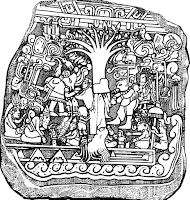Hebrew interpretation, Navi- provides great insight to the words of a prophet or prophetess in meaning, living in our times "to bubble up" or "put in our hearts"- "up unto everlasting life". Additionally:
"These latter days are a time of great spiritual thirst. Many in the world are searching, often intensely, for a source of refreshment that will quench their yearning for meaning and direction in their lives. They crave a cool, satisfying drink of insight and knowledge that will soothe their parched souls. Their spirits cry out for life-sustaining experiences of peace and calm to nourish and enliven their withering hearts.
Indeed, “there are many yet on the earth among all sects, parties, and denominations, who are blinded by the subtle craftiness of men, whereby they lie in wait to deceive, and who are only kept from the truth because they know not where to find it.”14 Let us work with all our heart, might, mind, and strength to show our thirsty brothers and sisters where they may find the living water of the gospel, that they may come to drink of the water that springs “up unto everlasting life.”
The Lord provides the living water that can quench the burning thirst of those whose lives are parched by a drought of truth. He expects us to supply to them the fulness of the gospel by giving them the scriptures and the words of the prophets and to bear personal testimony as to the truth of the restored gospel to alleviate their thirst. When they drink from the cup of gospel knowledge, their thirst is satisfied as they come to understand our Heavenly Father’s great plan of happiness.
As at Jacob’s well, so today the Lord Jesus Christ is the only source of living water. It will quench the thirst of those suffering from the drought of divine truth that so afflicts the world. The words of the Lord to ancient Israel spoken by the prophet Jeremiah describe the condition of many of God’s children in our own day: “My people … have forsaken me the fountain of living waters, and hewed them out … broken cisterns, that can hold no water.”15 Too many of our Heavenly Father’s children spend their precious lives carving out broken cisterns of worldly gain that cannot hold the living water that satisfies fully their natural thirst for everlasting truth." Joseph B. Wirthlin
A prophet/prophetess in our times can be a guide, a voice, or even an example to our times on how to muddle or meander through life, yet "bubbling up his word" can certainly help us to rise above...even better to see.



